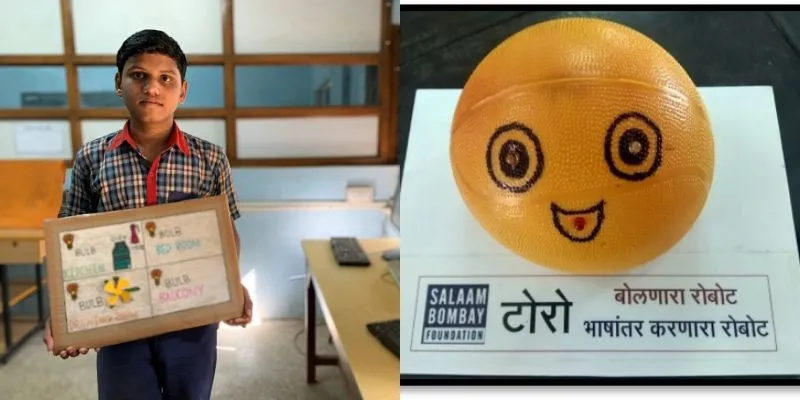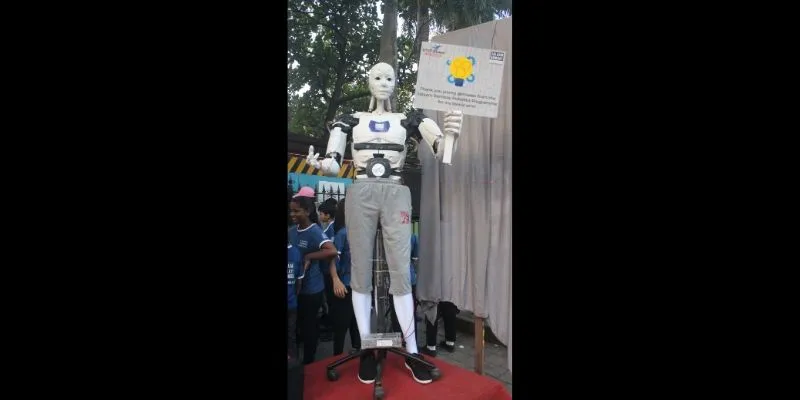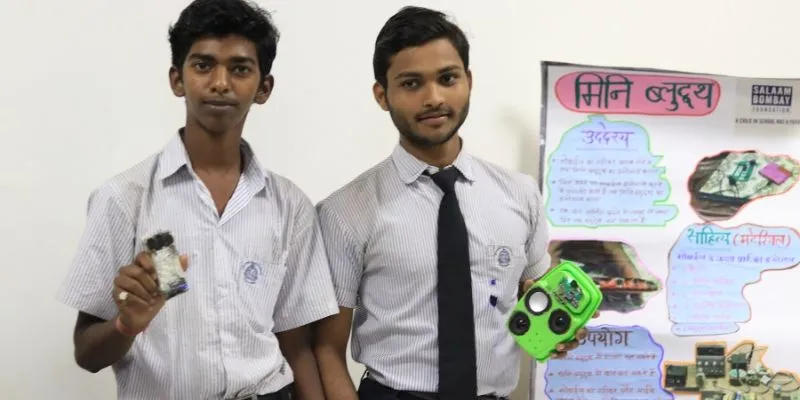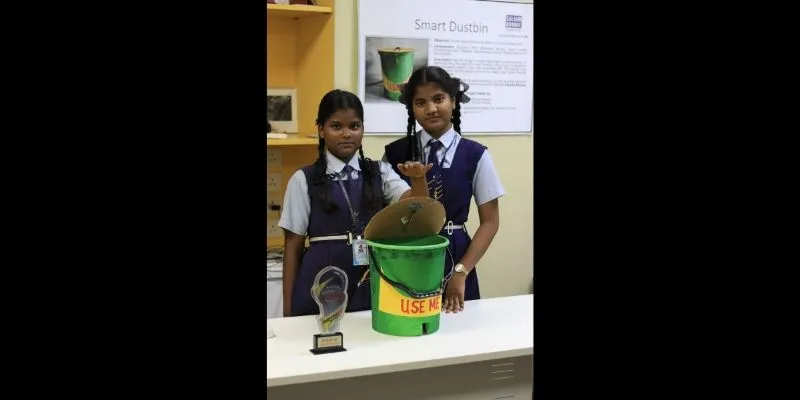Mumbai-based Salaam Bombay Foundation is introducing robotics to underprivileged children across India
Started by Salaam Bombay Foundation, skills@school programme has trained more than 20,000 kids since 2014, and has a presence across Mumbai, Kolkata, and Bengaluru.
Many of us are fascinated by science fiction pop-culture. Be it movies like Star Wars and Star Trek or Marvel and DC characters, we all have grown up watching them. And in the process, we loved the futuristic plot lines that were riddled with subjects like artificial intelligence, robotics, automation, quantum physics, and many more, that explained the existence of the universe.
While many are fortunate to pursue such technical subjects in real life, it remains a distant dream for children from lower economic backgrounds. Fourteen-year-old Ravi Patel from Pune is one of them, whose father couldn’t support his dreams to get him a better education, as he earns a meagre Rs 15,000 salary to take care of his entire family.

Ravi along with his project
However, things started changing for Ravi when he got support from Salaam Bombay’s skills@school programme, which has trained more than 20,000 kids since 2014. The same programme collaborated with Ravi’s school that would teach robotics to students. Soon, he started with the basic training and demonstrated his quick learning and made mechanical robots.
The success
Post his assessment for the basic course, Ravi qualified for an advanced level of training where he learned the art of the Internet of Things (IoT) and artificial intelligence (AI). Further, he was trained under the guidance of experts for a month, post which Ravi made a TORO Robot – a language translator programmed for 15 languages (five international and 10 national languages).
This was just the beginning for Ravi. Soon, he started implementing his technical knowledge in his independent projects – IoT-based home automation using microcontroller Arduino Uno and an internet app to control the electric home appliances in a house. With the system in place, all one has to do is give a voice command on the mobile app and the system will switch on and off any electrical appliances, lights, and fans of the house.

A robot made by the students for the Mumbai Marathon
Many young students like Ravi have also learned an advanced subject like robotics or IoT from Salaam Bombay Foundation’s skills@school programme. The programme is providing the robotic course to many students across municipal and government schools in Pune.
Speaking to SocialStory, Gaurav Arora, Vice President, skills@school programme says,
“Now, the robotics programme is being implemented by the Salaam Bombay Foundation in Mumbai, Kolkata, and Bengaluru, including Pune. What began with just 32 students, today has 188 boys and 189 girls – a testimony to how the course is also helping bridge the gender gap in Science, Technology, Engineering, and Mathematics (STEM) education, that generally exists in India.”
Enabling kids for the future
skills@school caters to adolescents between the ages group of 11–17 years. The after school programmes from the Salaam Bombay Foundation are designed by technical experts in the respective areas. For the robotics class, students from municipality schools start enrolling from Class 9.
While students have different learning curves, the training partners use age-appropriate curriculum and teaching methods that enable them to grasp and learn the skills without watering down the course content.

Students with their Mini Bluetooth speaker
“The courses focus on giving less theoretical and more hands-on experience and practical training to the students. Also, one of the programmatic approaches is to mobilise students to pick up the challenges from their daily life or communities, and carve out solutions around them,” Gaurav says.
Last year in November, India First Robotics, one of the training partners for skills@school on-boarded the first batch of 30 students for training in robotics, AI, and IoT from the Salaam Bombay Foundation.
Alongside training, these 30 students were also regularly assessed. Post the completion of the programme, the selected students were again assessed to be a part of this initiative. The students were evaluated on their technical, communication, and presentation skills as well.
Moreover, these students received training for humanoid service and infotainment – where they got a hands-on opportunity to assemble and programme the robot and his technological parts. The students first received the training on Arduino – a microcontroller for basic programming, and then on the bionic arm.
Transforming education
In India, 36.37 percent of adolescents drop out of school by Class 8, a consequence of multiple triggers such as pressure to contribute to family income, poor nutrition leading to sub-optimal brain development, less or no exposure to future career options, and less stimulating school curriculum leaving students bored and unenthusiastic.
Gaurav says, “At Salaam Bombay Foundation, we try to combat this with our skills@school programme, where students receive formal training in various vocational skills Like robotics, computer hardware, mobile repair, home appliance repair, bakery and confectionary, retail management, beauty and wellness, fashion and jewellery design, web design, and graphic design. All these courses are implemented by professional training institutes in the school settings.”
With these courses, skills@school programme has retained about 90 percent of its students who are continuing with their education.

Smart Dustbin
In terms of the interest shown by the students, the course has witnessed an average attendance rate of 84 percent. These students, on the other hand, are finding the courses under the programme engaging. Further, students not only use their hands-on experience in their class settings but also at their homes.
The students have designed gadgets like automatic e-waste paper bins, mobile chargers, study lamps, and Bluetooth speakers from waste materials. They have also made wireless display boards, ultrasonic sensor gloves for the blind, battery-operated soda machines, automatic street light, etc.
“On completion of their training in the field of their choice, students either begin their entrepreneurial ventures or seek part-time employment. While continuing education, they also help in contributing to their higher education which their parents cannot afford. They also contribute to the family income thereby, reducing the pressure of dropping out of school. The skills@school programme is a key pathway to reducing dropout rates and ensuring adolescents are equipped with skills to face the future with confidence,” Gaurav adds.
Further, the foundation aims to strengthen its presence across India, and in the year 2020-2021, skills@school programme aims to teach more than 10,000 adolescents with new-age technologies.
(Edited by Suman Singh)








